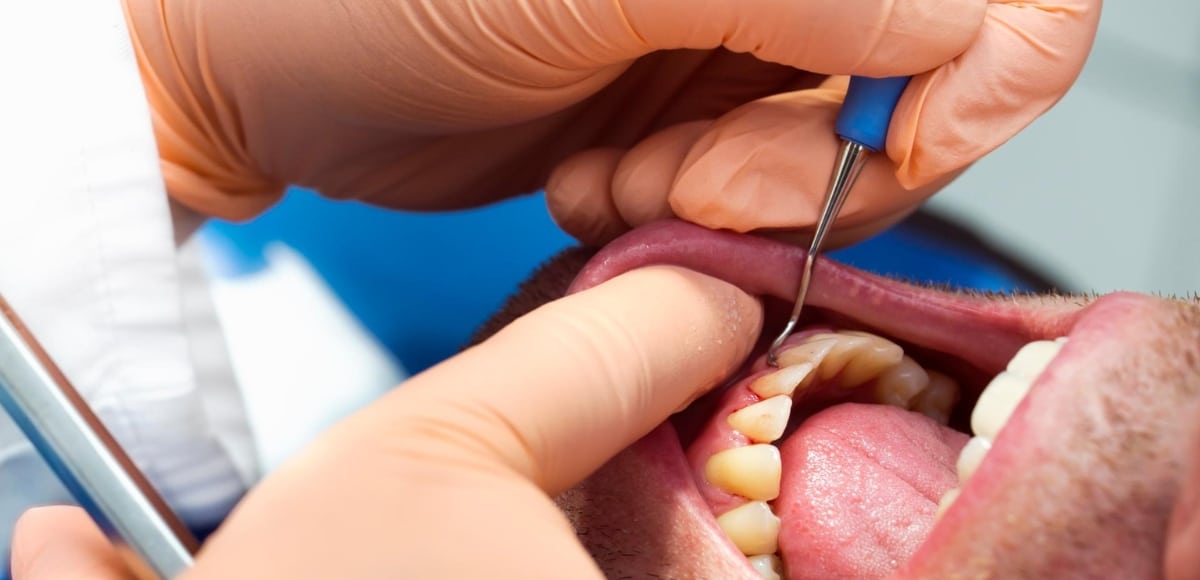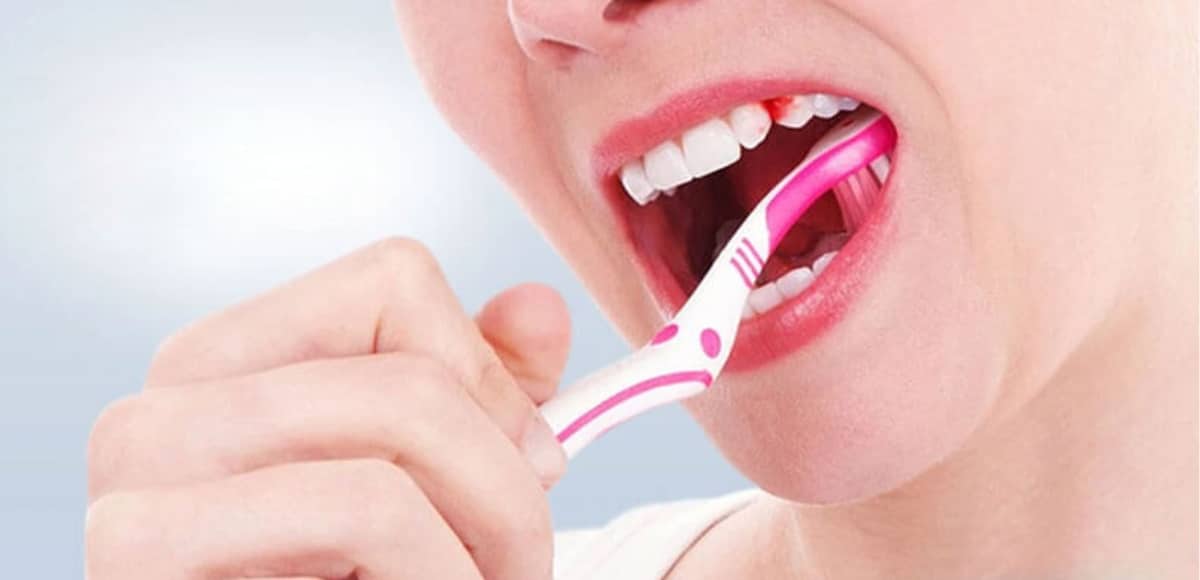
Unraveling the mysteries of human health is a never-ending quest as we seek to understand how various disorders and diseases interact. One such surprising link is between cancer and gum disease, two seemingly unrelated ailments with more in common than meets the eye. While we frequently think of cancer as an internal battle, new research has revealed an unexpected association with oral health. So, let’s dive into this enthralling investigation of what binds these two antagonists together and how to protect yourself from their hold. Let us investigate this intriguing mystery!
What Is Gum Disease?
Gum, or periodontal disease, is a chronic inflammatory disorder affecting the tissues surrounding and supporting the teeth. It all starts with plaque, a sticky film of germs that forms on the teeth and gumline. If not removed with frequent brushing and flossing, plaque can solidify into tartar, causing gum inflammation.
Gingivitis is the first stage of gum disease. During brushing or flossing, symptoms include redness, edema, and bleeding gums. Gingivitis is usually treatable with good oral care and skilled dental cleanings.
If left untreated, gingivitis can progress to periodontitis, a more serious form of gum disease. The infection spreads beneath the gum line, resulting in bone loss and tooth loosening. Periodontitis could cause tooth loss in advanced stages.
While poor dental hygiene is a major risk factor for gum disease, other variables such as smoking, hormonal changes (such as pregnancy or menopause), and certain drugs such as anticonvulsants or immunosuppressants may also increase susceptibility.
What Is Cancer?
Cancer is a difficult and deadly disease affecting millions of people worldwide. It is the uncontrollable proliferation and spread of abnormal cells in the body. These cells can develop tumors, infiltrate adjacent tissues, and spread to other body parts.
There are numerous varieties of cancer, each with its own set of characteristics and treatment choices. Breast cancer, lung cancer, prostate cancer, and colorectal cancer are all frequent forms.
The precise causes of cancer are yet unknown. Certain risk factors, however, have been found to raise an individual’s likelihood of having the condition. Genetic mutations, carcinogen exposure such as tobacco smoke or UV radiation, unhealthy lifestyle choices such as poor food and lack of exercise, and certain infections such as human papillomavirus (HPV) or hepatitis B are examples.
Cancer is often diagnosed using a combination of medical history evaluation, physical examination, imaging tests (such as CT scans or MRIs), laboratory tests (such as blood tests or biopsies), and genetic testing.
The Link Between Cancer And Gum Disease
Source: VOA Africa
Gum or periodontal disease is a gum infection that can cause swelling, redness, and bleeding. It is typically caused by poor oral hygiene habits, such as failing to brush and floss regularly.
Conversely, cancer is a category of diseases characterized by the uncontrollable growth and spread of aberrant cells. Cancer comes in numerous forms, including lung, breast, and colon cancer.
Recent research suggests a link between gum disease and some types of cancer. According to researchers, chronic inflammation in the mouth caused by gum disease can contribute to systemic inflammation throughout the body. This prolonged inflammation may increase the likelihood of acquiring some malignancies.
Furthermore, several investigations have discovered particular bacteria often associated with gum disease in tumor samples from cancer patients. While additional research is required to understand this association completely, it does show that there may be a link between dental health and general health.
How To Prevent Gum Disease
Maintaining good oral hygiene is crucial in preventing gum disease. Here are some simple yet effective ways to keep your gums healthy:
1. Brush Your Teeth Twice Daily: Use a soft-bristled toothbrush and fluoride toothpaste to clean your teeth and gums gently. Be sure to brush for at least two minutes, covering all surfaces of your teeth.
2. Floss Daily: Regular flossing helps remove plaque and food particles from between the teeth and along the gumline, where a toothbrush may not reach effectively.
3. Rinse With Mouthwash: An antimicrobial mouthwash can further reduce bacteria in the mouth, promoting healthier gums.
4. Maintaining A Balanced Diet: Eating nutritious foods rich in vitamins and minerals can strengthen your immune system, helping fight gum infections.
5. Limit Sugary Snacks And Beverages: Sugary foods contribute to plaque buildup, leading to gum disease if not properly removed through brushing and flossing.
6. Avoid Tobacco Products: Smoking or chewing tobacco increases the risk of developing gum disease significantly.
7. Visit Your Dentist Regularly: Regular dental check-ups allow for early detection of any signs of gum disease or other oral health issues.
By following these preventive measures consistently, you can greatly reduce the risk of developing gum disease and maintain optimal oral health throughout your life!
How To Prevent Cancer
Preventing cancer is a top priority for many people, and there are steps you can take to reduce your risk.
Healthy Lifestyle: Maintaining a healthy lifestyle is one of the most important things you can do. This includes eating a well-balanced diet rich in fruits and vegetables, exercising regularly, and abstaining from tobacco products.
Protection From UV Rays: Self-protection from dangerous UV radiation is another essential component of cancer prevention. Wear sunscreen with at least SPF 30 whenever you are outside, and seek cover when the sun is at its strongest.
Regular Monitoring: Regular screenings are also crucial in detecting cancer early on. Depending on your age and gender, these may include mammograms, Pap tests, colonoscopies, or prostate exams. By catching cancer in its early stages, treatment options are often more successful.
Choose Natural Alternatives: Limiting exposure to environmental toxins such as air pollution and chemicals found in cleaning products or pesticides is essential. Take steps to create an eco-friendly environment by choosing natural alternatives whenever possible.
Positivity: Maintaining a positive mindset and managing stress can also play a role in preventing cancer. Find healthy ways to cope with stress, like practicing mindfulness or engaging in hobbies that bring joy, and get help from your dentist to overcome your dental anxiety.
Remember that while there’s no guaranteed way to prevent cancer entirely, these lifestyle choices can significantly reduce your risk factors. Stay proactive about your health by incorporating these preventive measures into your daily routine!
There is a strong correlation between gum disease and cancer. While additional research is needed to understand the mechanisms underlying this association completely, investigations have revealed a link between the two illnesses. Gum disease raises the risk of acquiring various malignancies, including pancreatic, kidney, and blood cancers.
Remember that prevention is essential for overall health. We can reduce the risks of gum disease and cancer by caring for our oral health through basic dental hygiene habits and making favorable lifestyle choices.
So, let us emphasize oral health – not only for our smiles but also for our general health!


